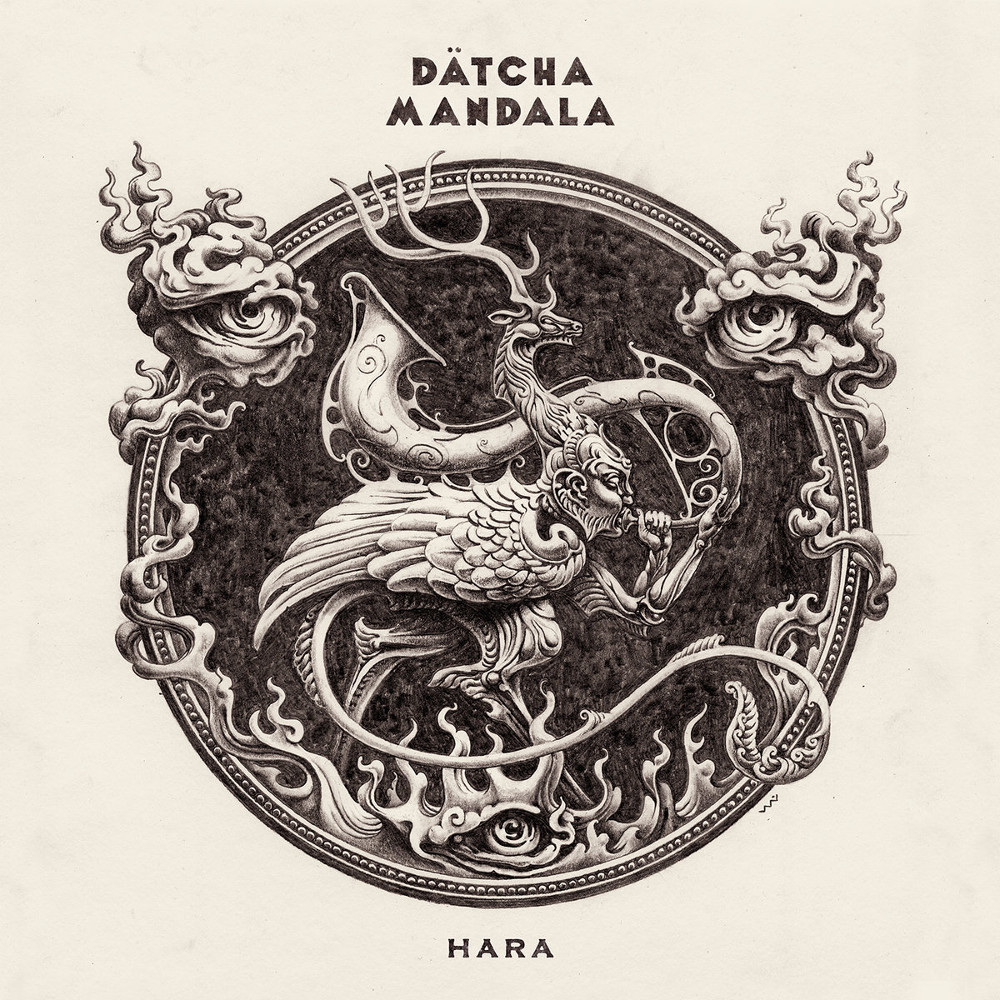 |
Country: USA
Style: Heavy Metal
Rating:
Release Date: 12 Jun 2020
Sites: Bandcamp | Facebook | Instagram | Official Website | Twitter
Having recently reviewed an album of all original music from what used to be a tribute band (Fragile, in case you're wondering), here's a counter: some major names teaming up to cover a bunch of American rock classics from the seventies. The project started with bass player Mark Menghi of the groove/thrash supergroup, Metal Allegiance, and he created another tight side band here with an accomplished set of musicians.
The band name is the initials you might expect, with Menghi the M. The B is Bobby 'Blitz' Ellsworth, lead vocalist of New Jersey thrash outfit Overkill; the P is Mike Portnoy, former drummer of Dream Theater; and the D is former Machine Head guitarist Phil Demmel, who's now with Violence. For a line-up of mostly thrash musicians, they treat these songs as rock songs, heavying them up a little but rarely speeding them up. This wasn't about reinventing them in a thrash style.
Apparently, each member of the band chose two songs to cover, with the final two being group decisions and it's interesting to see who picked what.
Mike Portnoy's two choices show up first and they're a fantastic way to kick things off. They're well known songs, so everyone can sing along: Wang Dang Sweet Poontang, originally by Ted Nugent, and Aerosmith's Toys in the Attic. The former gives Ellsworth a great opportunity to introduce the band in the sort of rapid fire rhyme that Nugent used to famously introduce the song on Double Live Gonzo! My favourite of these two is the latter, though, because it's similar to the Aerosmith original but more vicious and in your face.
Menghi's choices are iconic numbers too, including the one that sparked the band and album to begin with, Lynyrd Skynyrd's Saturday Night Special. The other is ZZ Top's Beer Drinkers & Hell Raisers and it was here that I realised how true to the original tempos BPMD were being. There may be a couple of extra notes in Saturday Night Special to give it a little more emphatic crunch but the band don't attempt to reinvent the song, just give it more urgency.
Ellsworth and Demmel plumped for deeper cuts, especially to my British ears, given that my seventies rock education was from bands that Overkill acknowledged on their Coverkill album: Black Sabbath, Motörhead and Deep Purple more than Cactus, Mountain and the James Gang. Overall, my favourites here were the more obscure numbers, with the exception of We're an American Band, the Grand Funk Railroad standard. That's a song everyone knows and the one that I looked forward to least here, but BPMD do a superb job of making it seem new and filling it with fresh life.
Ellsworth's choices were Evil, the Cactus version of the Willie Dixon blues number and Never in My Life, a Mountain song that I don't know. Strangely, I would call the former the least successful choice here but the latter one of the most successful and for much the same reason. I don't think the band are able to catch the groove in the former and Ellsworth's vocals overwhelm it, but they absolutely nail the groove in the latter and Ellsworth shines, his snarl really fitting the style.
That leaves Demmel, who to my way of thinking is the backbone of this album, as utterly reliable as Portnoy and the others are but let loose to shine on a more frequent basis. He gets to play in quite a number of styles, provide both the lead and rhythm and to do the job of two guitarists on his own. His contribution to Toys in the Attic sounds very different from what he brings to Never in My Life or his own choices, which are Blue Öyster Cult's Tattoo Vampire and Van Halen's D.O.A., but he's excellent on each.
Both could be called deep cuts, even though the originals were on albums as famous as Agents of Fortune and Van Halen II, and, while other songs on them spring quickly to mind, these didn't for me, perhaps making these versions a bit fresher inherently. BPMD really dive into both songs though, with a wild guitar from Demmel. Tattoo Vampire feels like such a gimme for a thrash band that I'm surprised I've not heard it covered by one before and the latter is so quintessentially Van Halen that anyone not knowing the original would not be in doubt as to who originated it. Both are real highlights here.
That leaves a couple of bonus tracks, selected by the band as a whole, with We're an American Band the closer that leaves us happy but wanting more, as indeed all closers should. The other is another deep cut that's a highlight for me, the James Gang's Walk Away, which everyone shines on, including some slightly less sneering vocals than usual from Ellsworth.
I really dug this album, a lot more than the last covers album I reviewed, a much more predictable affair from the Ron Keel Band. This is just as fun and even better performed but it's not remotely as disposable. Beyond bringing fresh life to a few songs so well known that it's difficult for anyone to do a good job in the modern day, they also shed new light on a bunch of lesser known songs that listeners are absolutely going to seek out now.
I think part of the success is the clear passion this band has for this sort of material but part of it also is that, whoever chose a particular song, it took the whole band to bring it life and, with the one exception of Evil, I would say that everyone shines on everything. I've listened to this through a few times and whatever instrument I focus on, it's heartfelt and strong. I would love to see a follow up to this album whenever the guys are ready for it.




















